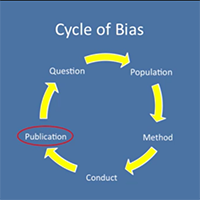A Sweet Scandal
A Look at How Industries Affect Research Results
by Si Jie (Sophia) Ma
Sugar is sweet, but what isn’t sweet is its long term effects on the human body. You’ve probably been told to cut down on sugar or that sugar is bad. However, when comparing fat to sugar, which one is worse? A Harvard study in the 1960s tried to answer that question, except the researchers were influenced by an external force, which ended up skewing their results. That influencing force was none other than the sugar industry, which paid the researchers approximately $50,000 to publish an article in 1967 about the effects of fat, cholesterol, and sugar on stroke and heart disease.
 In response to criticism, The Sugar Association released a statement that refuted claims of sugar’s negative influence by saying, “we question this author’s continued attempts to reframe historical occurrences to conveniently align with the current trending anti-sugar narrative…decades of research have concluded that sugar does not have a unique role in heart disease.” Consequently, cholesterol and fat became accepted by the public as leading causes of heart disease.
In response to criticism, The Sugar Association released a statement that refuted claims of sugar’s negative influence by saying, “we question this author’s continued attempts to reframe historical occurrences to conveniently align with the current trending anti-sugar narrative…decades of research have concluded that sugar does not have a unique role in heart disease.” Consequently, cholesterol and fat became accepted by the public as leading causes of heart disease.
For decades, we’ve been led to believe that those were the villains, the culprits. In supermarkets, we see foods labeled as “heart healthy” which means that the foods have reduced fat and cholesterol. In fact, the food industry has used these results to compensate for the lack of fat and cholesterol in their products with more added sugar. In reality, these so-called “heart healthy” products aren’t so healthy after all.
The sugar industry scandal was uncovered in recent months and has been the topic of much controversy. However, it shouldn’t be surprising. The tobacco industry has done something similar for decades as well, such as well as in the early 1900s, when doctors were paid to endorse cigarettes and other tobacco products and even encouraged their patients to use them. The fossil fuel industry provides funding for scientists to refute claims of global warming, climate change, and pollution, all so these industries can continue to survive despite the lies they feed to the public.
There was a panel hosted by Wonderfest held at Stanford University titled “Does Corporate Funding Corrupt Science?” that had a variety of speakers of varying backgrounds who shared their view on the controversy regarding whether corporate funding of research was ethical. Sixty-five percent of research in the US is funded by private agencies or companies.
According to Dr. Lisa Bero, a Health Policy Studies professor at the University of California San Francisco medical school, “Research has really become a form of drug promotion and marketing. Like advertisements, these research studies emphasize the positive and minimize harms.” Results show that industry-funded studies on drugs made by a certain sponsoring company were more likely to demonstrate better effects and fewer side-effects than the placebo and competing brands. According to Dr. Bero, pharmaceutical research, along with other forms of research, may be subject to a cycle of bias. Sponsoring of the study can affect the population studied, the conduct or protocol of the study, and most of all how a study is published, which can skew the results and how the public views the results.
 However, according to Dr. Henry T. Greely, professor of law and genetics at Stanford University, science itself cannot be corrupted, for it was never pure in the first place. Researchers, post-docs, graduate students, and lab technicians need to be paid somehow and receive the necessary equipment, and corporate funding is an integral part of their profits. According to Dr. Greely, “the one who pays the piper gets a say on what tune gets called.” Sometimes corporate funding may be a good thing, since practical information may be spread to the masses. Without corporate funding, some life-changing research projects may not have been released or even initiated due to the lack of money or public support.
However, according to Dr. Henry T. Greely, professor of law and genetics at Stanford University, science itself cannot be corrupted, for it was never pure in the first place. Researchers, post-docs, graduate students, and lab technicians need to be paid somehow and receive the necessary equipment, and corporate funding is an integral part of their profits. According to Dr. Greely, “the one who pays the piper gets a say on what tune gets called.” Sometimes corporate funding may be a good thing, since practical information may be spread to the masses. Without corporate funding, some life-changing research projects may not have been released or even initiated due to the lack of money or public support.
Corporate funding of research has both a dark side and a bright side. It is time for us as a community and as consumers to accept that research results need to be taken with a grain of salt. We should look at the entire truth and make comparisons before we draw our conclusions based on just one study or news article. As a public research university, UC Berkeley releases a lot of information on new innovations and study results. In fact, university research, especially that of public universities, is often sponsored by companies and public funds. Countless undergraduates are involved with Berkeley’s diverse research programs as technicians, assistants to faculty, or even as subjects. All research participants must be cognizant of potential bias and its implications. Even students who don’t partake in research are still affected as consumers of media. Media, just like research results, can be skewed as well. On an everyday basis, we must be mindful of what is actually happening around us instead of viewing a skewed interpretation or facade of something that others want us to see.
To learn more about research ethics, view this Ted Talk by Dr. Gary Gray, sociology professor at the University of Victoria. Dr. Gray goes more deeply into hidden biases in research and what we should do to rebuild our trust in these studies.
